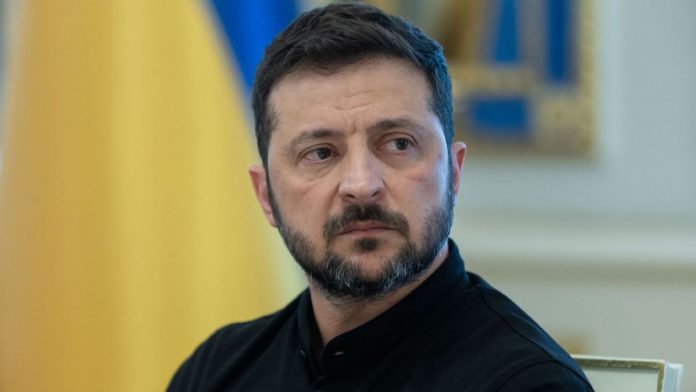On July 29, 2025, the government of Ukraine passed a new law that allows elderly citizens to join the military during times of war.
Legislative Move During Martial Law
The law, signed and published on the parliament’s official platform, allows citizens aged 60 and above to voluntarily join the armed forces under certain conditions.
This law only applies during periods of martial law. It does not apply in normal situations or peacetime. According to the legal text, the decision was made to support the country’s ongoing need for manpower during active conflict.
The new provision comes as a continuation of Ukraine’s regulatory response to wartime challenges, particularly regarding human resource availability in its military infrastructure.
Who Can Join and Under What Rules
The law sets clear guidelines for those above 60 who wish to serve. They can sign a one-year contract for voluntary military service. However, there are conditions:
-
Each person must pass a medical examination.
-
A unit commander must approve their service.
-
If the applicant wants to serve as an officer, additional clearance from the General Staff or other authorized military departments is required.
Importantly, there is no fixed upper age limit. Any citizen above 60 is eligible if they meet the criteria. However, the contract is automatically canceled when martial law ends. This provision acts as a built-in termination clause.
Before full induction, all recruits will be placed in a two-month probationary period. During this phase, their fitness and suitability will be tested. If they fail to meet the operational standards, their contract may be terminated early without penalty.
This is consistent with Ukrainian law on voluntary enlistment and temporary service contracts during emergencies.
Background: Broader Mobilization Policies
Ukraine has been gradually adjusting its mobilization laws to deal with increasing pressure from prolonged conflict. This new law fits into a broader set of regulatory changes rolled out since early 2024.
-
In April 2024, Ukraine lowered the military draft age from 27 to 25 years.
-
In February 2025, a new system of one-year voluntary contracts for 18 to 24-year-olds was implemented. These contracts came with financial incentives to attract more recruits.
The law signed on July 29 expands the pool even further by allowing older professionals to serve in the military. However, the government emphasized that the focus for the over-60 age group is primarily non-combat roles.
Sanctions hit hard — Zelensky urges final blow as Russian economy spirals
Areas of potential assignment include:
-
Technical operations
-
Logistics and transportation
-
Military administration
-
Field support and medical supply chains
This approach ensures that experienced citizens can assist without facing direct combat risks, and also supports critical backend functions necessary for ongoing operations.
Wartime Compliance and National Policy
This law marks another example of how compliance frameworks change during times of national emergency. Under martial law, many standard rules relating to labor, mobility, and contracts are adjusted or suspended.
The legal inclusion of older individuals in national defense roles falls within the sovereign powers of a nation under threat. Ukrainian authorities have documented their need for regulatory flexibility as part of survival strategy.
The parliamentary website confirms that these temporary laws are subject to reversal once martial law is lifted. Contracts made under this new law expire automatically once the emergency ends.
In regulatory language, this establishes a sunset clause, limiting the long-term applicability of the policy. Such clauses are standard in crisis-related legislation across many countries.
There are no indications that this policy will be extended to include compulsory conscription for seniors. It remains entirely voluntary, preserving individual freedom while enabling those willing to serve to contribute.
Implications for Manpower Management
The Ukrainian defense infrastructure has been under stress since the large-scale offensive launched in late 2024. Heavy troop losses and prolonged warfare created a shortage of able-bodied personnel.
The newly passed law is aimed at addressing those gaps in a legal and structured manner. It opens up a new demographic category that was previously excluded under age-based restrictions.
The move could potentially decentralize workload from younger troops and allow specialists to focus on their core skills. It also aligns with EU defense models, where older citizens often support homeland security in civil defense roles.
Ukraine’s military has already begun deploying logistical hubs and technical centers away from frontline zones, which would be suitable placements for older volunteers.
Data Privacy and Medical Clearance
The law requires medical examination results before enlistment. Under Ukraine’s military medical code, these evaluations are confidential. However, for those enlisting, consent must be given for their data to be shared with command-level authorities.
All such data handling must comply with wartime exceptions to Ukraine’s Data Protection Law (DPL), which allows limited override in cases of national security.
Commanders are also held responsible for notifying rejected applicants within the 60-day probation window, and for ensuring all documents are filed with the Ministry of Defense’s central registry.
No Maximum Age Limit, But Limited Duration
One of the law’s most notable features is the absence of a maximum age limit. A 70- or even 75-year-old individual could legally enlist if cleared medically and approved operationally. However, this flexibility comes with a firm temporal restriction: service ends with martial law.
By decoupling age limits from voluntary contracts but tying the duration to emergency law, Ukraine maintains a compliance-first framework with clear expiration triggers.
